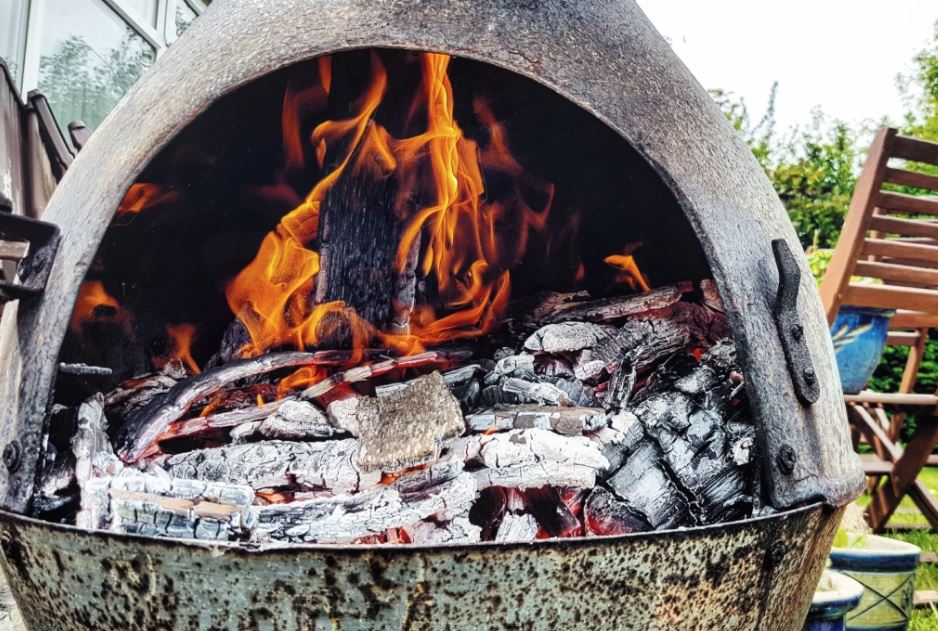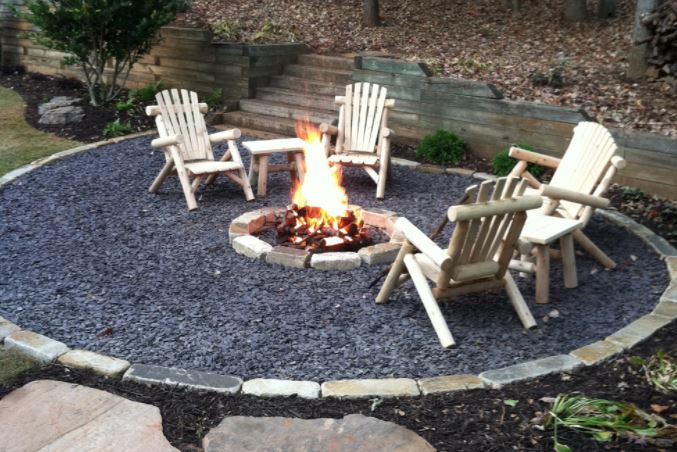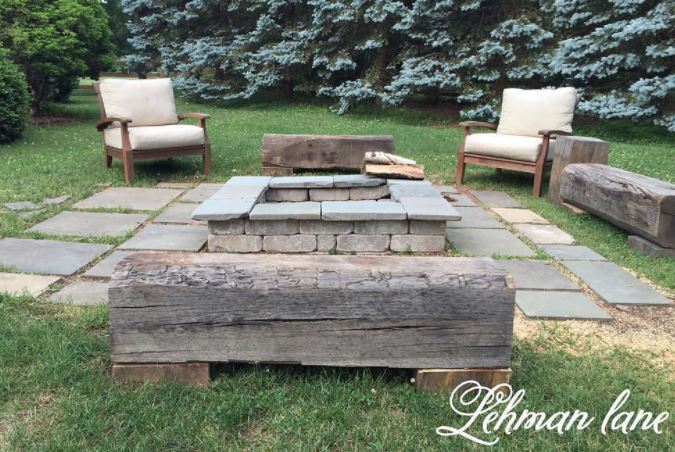
Indoor evenings on the couch are so last year. Literally. Relaxing around a fire and under the stars is about to be the place for a perfect night. But a built-in fire pit can cost upward of $5,000 for an above-ground, propane-burning brick fire pit without installation. That’s a pricey upgrade.
Don’t worry. With these money-saving tips, you can build a fire pit for less than a grand — and still have a fabulous one:
#1 Choose Wood Instead of Gas
Gas fire pits are more expensive because you’ll have to hire a plumber to run the gas line and an electrician to power the pit.
A wood fire pit has none of that cost, which will run at least several hundred dollars. Besides, who doesn’t love the smokey ambiance of a wood fire?
#2 If You Want Gas, Put It Close to Your House
OK, not everyone loves an ashy, smoky fire pit. If you do want the simplicity of gas, you can get it most cheaply by keeping that gas line as short as possible.
The farther from your house that plumber has to run the gas line, the longer he’ll be there. And the longer he’s there, the more it will cost. And remember the electrician you’re going to pay to run wires to power the automatic starter? Same thing.
#3 Skip the Built-In Seating

Those stone benches in a semicircle around a flaming fire pit look like money. That’s because they’re made of it.
Built-in benches that will seat six people with a comfortable amount of personal space can cost as much — or more — as the fire pit itself.
A resin Adirondack chair can cost $150 or less. Plus, chairs are easier on your butt as well as your wallet.
“Built-in benches look cool, but no one wants to sit on them,” says Aaron Rogers of Southern Poolscapes. “They’re really uncomfortable.”
#4 Don’t Do Custom Anything
You can have a fire pit designed just for you. One-of-a-kind. But unless you’re a trust-funder or just like spending money like one, stick with a contractor’s standard build. Most offer prefab, modular units that cost at least half as much as a custom build.
“I’ve put in custom fire pits that cost as much as $7,000 — just for the pit,” Rogers says. That means the patio cost even more. Yowsa!
#5 Go With a Paver Patio

Flagstone gives you the natural beauty of real stone, but it costs $15 to $30 per square foot for patio flooring and $25 per square foot for flagstone pavers.
Unless you’re making a one-person pit (no judgment, introverts), that’s gonna add up. A paver patio looks manufactured, but it costs $6 to $10 per square foot. “Concrete pavers are a good way to cut costs and still have a good-looking patio,” says Ted Essig of Sky Valley Landscape.
#6 Select an (Almost) Smokeless Fire Pit
Smokeless fire pits, or smokeless stoves, aren’t entirely smokeless. But even though they’re wood burning, they generate less ash than wood fire pits The list of pros is extensive: durable, easy to maintain, efficient, usually made of stainless steel, and sometimes portable.
Keep in mind that some aren’t safe to use on decks, so for those, you’ll need a heat shield or fire pit mat.
The price ranges from about $90 to about $600 if you want a high-end Solo Stove.
#7 Choose a Decomposed Granite Patio (It’s the Cheapest!)
It looks like sand. It isn’t fancy. But it’s cheap as heck.
A pro can lay this stuff for as little as $2 a square foot.
Very important: Heavy rainfall can wash away a decomposed granite patio. If you live in Phoenix, decomposed granite is a great option. If you live in New Orleans, keep shopping.
#8 DIY a Fire-Pit Kit
If you’re handy, DIY it. You can get a kit for a wood-burning fire pit for $130 and up. (You can buy kits for gas fire pits, too, but they cost a lot more and you’re still going to need to run a gas line.)
The easiest fire-pit kits are made of modular stone that you can stack, no mortar necessary. They’re like Legos for grown-ups. Each brick has a raised edge that makes it sit securely on the one below it. The only tool you’ll need is a wrench.
But be prepared: These kits can weigh as much as half a ton. Buy one you can have delivered.
#9 DIY the Patio, Too
If you’re building the pit, why not build the patio, too? It’s just a floor, so no design skills required.
In order of difficulty: A decomposed granite patio is easiest to DIY. Pavers are next, followed by flagstone.
“Fifty to 60 percent of a patio cost is the labor,” Rogers says. You can do this, thrifty homeowner. Go to YouTube, search “How to build a patio,” and get going.
Visit HouseLogic.com for more articles like this. Reprinted from HouseLogic.com with permission of the NATIONAL ASSOCIATION OF REALTORS®.
